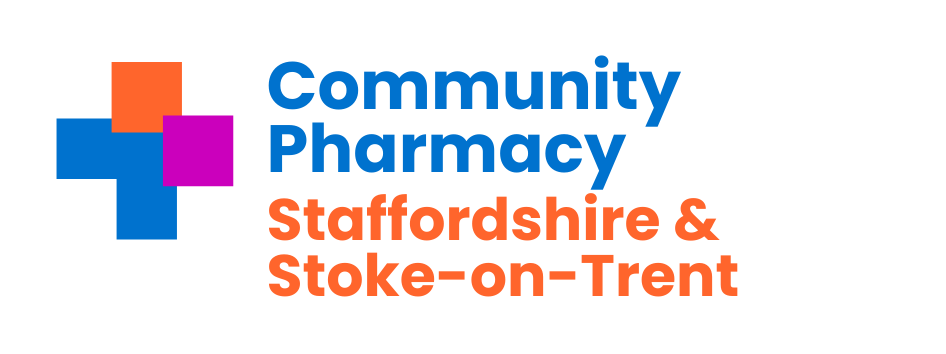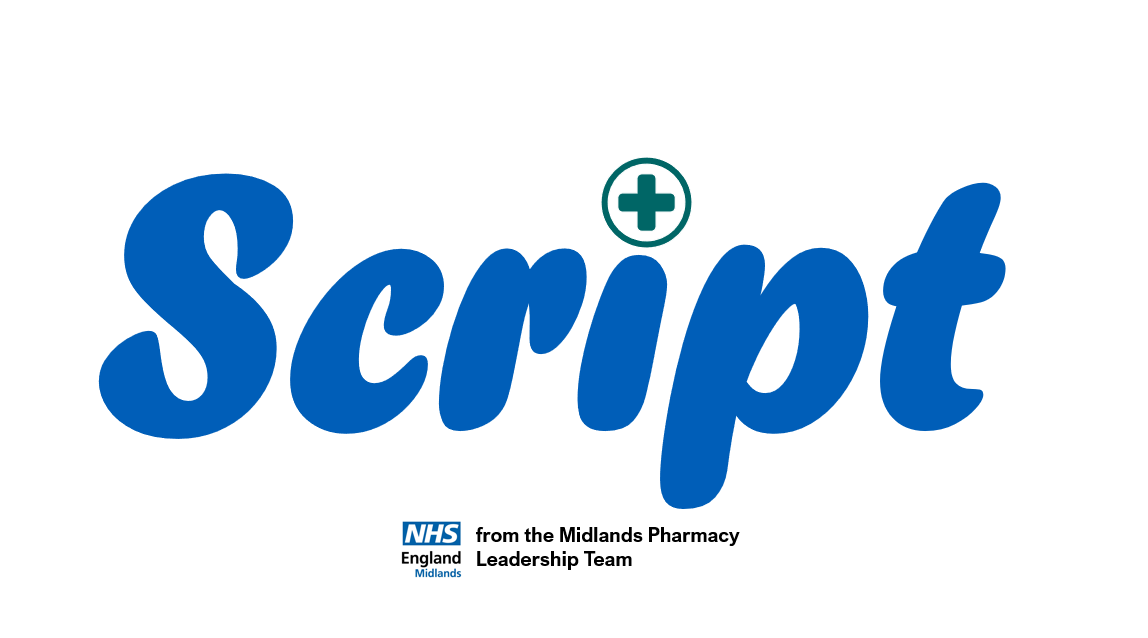Extended Care FAQs
This information applies to the Extended Care Service across the whole NHSE&I Midlands Region
This page is being constantly updated, as we receive questions the information will be shared here so please keep checking for new information.
Q. Who can provide the Extended Care family of services?
A. This service may be provided by authorised Community Pharmacies contracted to NHS England Midlands, who are committed to making staff available to provide the service, subject to the conditions outlined on the service pages. Tier 2 may be offered by any pharmacy which is also signed up to Tier 1 service
Q. I have not provided Extended Care before, can I sign up now?
A. Yes, new pharmacies will be accepted onto the extended care pharmacy Tier 1 and Tier 2 services. You are reminded that you can only sign up for Tier 2 if you also sign up for Tier 1.
Q. Are there new PGDs for 2023-24?
A. Yes, a new set of PGDs have been released. Please see the links on our CPCS Extended Services Page
Q. Why was the 7-day follow-up introduced to Tier 1 and Tier 2 services in April 2022?
A. The 7-day follow-up was introduced in response to the national work on antimicrobial stewardship and is a requirement for PGDs services going forward. You are required to carry out a 7-day follow up with EVERY patient – regardless of whether you supplied medication to them today or not. The aim of asking community pharmacies to complete 7-day follow-ups is to allow collection of information on what happened to the patient after seeing you. The information will help the NHS to assess whether the pharmacy service is truly saving a GP or other HCP appointment – this information will help to demonstrate the worth of the pharmacy services
Q. Does the patient have to come to the pharmacy for the 7-day follow-up?
A. No. Patients may come to the pharmacy to talk you but it is absolutely acceptable for the follow-up to be carried out over the telephone.
Q. How do I manage the 7-day follow-ups?
A. When you explain the service to a patient you will need to confirm the requirement that the patient will speak to you in approx. 7 days. During their first consultation it would be sensible to note if there is a time of day that would suit them best e.g. morning or afternoon? Also, you can be flexible so if the 7th day falls on a day that they would not normally be available (e.g. if they go back to work / school / activity) then you can agree to contact them on the 6th or 8th day. Completing the follow-up is the important thing. This may seem like just one more thing to remember during the consultation, but a few moments sorting this out during the initial consultation may save you wasted phone calls later.
Q. What is ‘Lost to Follow-up’ Can you explain the 3 contact attempts – am I expected to ring patients from home to meet the timing requirements?
A. The 7-day follow-up is an important part of the service, and your consultation fee is invoiced when you save the follow up. Clearly, the NHS want the info on whether the community pharmacy service is saving GP appointments etc and so it is important to get as much data as possible. However, it would not be fair for the pharmacy to miss out on their professional fee if a patient is genuinely uncontactable. You therefore have the option to record a patient as ‘lost to follow-up’ – this option allows the pharmacy to attempt to contact the patient on three distinct occasions and if they are still unable to get through to the patient they can record and save the attempts in the 7-day follow-up module.
You are not expected to call patients outside the normal working hours of the pharmacy. You are required to make 3 attempts at different times:
- If you open at weekends, we ask that one of your attempts is a weekend day.
- We also ask that you attempt to call once in the evening – by this we mean as late in your normal working day as is practical – this is about common sense, so if you close at 5pm you’d be classing a 4.30pm call as your evening call but if you are open until say 10pm you wouldn’t be ringing patients that late so your evening call may be between 5 and 7pm. It is flexible – we expect pharmacy professionals to use their judgement and we take a pragmatic approach to this.
- The PharmOutcomes module allows you to record either 1 weekend, I evening and 1 other attempt OR 1 evening and 2 other attempts depending on your opening hours.
What is not acceptable would be a pharmacy trying to ring a patient 3 times within half an hour as this is not spreading the attempts so is probably less likely to be effective. Lost to follow-up is expected to be very much the exception and as part of the ongoing audits of the service if pharmacies record every patient as lost to follow-up this would flag up a possible issue and NHSE&I would contact the pharmacy to discuss this issue.
Q. How do I know which pharmacies are signed up to the service
A. NHSE Midlands updates the list of pharmacies regularly. More information and the pharmacy lists can be found here.
Q. I have signed up to Tier 1 but am not on the list yet -why?
A. There may be some lag between your signing and sending in the SLA and then appearing on the list. If it is more than 2 weeks since you sent in an SLA please email the NHS team at East or West and check with them in case the SLA has been missed.
Q. I have signed up to Tier 2a but am not on the list yet -why?
A. There may be some lag between your signing and sending in the SLA and then appearing on the list. If it is more than 2 weeks since you sent in an SLA please email the NHS team at East or West and check with them in case the SLA has been missed. Please Note: you can only sign up to Tier 2a services if you have signed up to Tier 1 services. If you have not yet signed the Tier 1 SLA this will prevent you going onto the Tier 2a service. If you do wish to deliver both Tier 1 and Tier 2a but have so far only signed up to Tier 2a, then you will need to sign and return Tier 1 SLA.
Q. My pharmacy is in the West Midlands, I signed the SLA and returned it to the West Midlands team, can I supply patients from East Midlands?
OR
Q. My pharmacy is in the East Midlands, I signed the SLA and returned it to the East Midlands team, can I supply patients from West Midlands?
OR
Q. Can I supply the service to patients who are temporary residents in the Midlands region?
OR
Q. Can I supply to someone who comes to my pharmacy but lives just outside the Midlands Region?
A. The service covers the whole NHSE&I Midlands footprint and this means that you are able to treat those registered with GPs in the East Midlands, Central Midlands and West Midlands areas. The PharmOutcomes modules have been edited to reflect this and when you enter the GP practice details, those in the correct region will be available to save while those outside the area are greyed out. Temporary Residents: you may treat patients who are staying in the NHSE&I Midlands Region as temporary residents provided they are registered with a GP in England. You will be asked to confirm their temporary resident status within the PharmOutcomes module. Important note, this service is not intended to be delivered to patients who live outside the area and are only visiting for the day or reside just over the Midlands borders. Provision of services to out of area patients as temporary residents should be by exception.
Q. Are there any flow-charts or other documents I use to understand the patient journey?
A. Yes, links to these are available on our CPCS Extended Services page
Q. Can I share the flow-charts and service explanation sheet with my GP practices and other colleagues
A. YES – please share these to help you explain the service to colleagues when you speak to them, you may consider leaving copies with your local GP practices after you’ve spoken to them to explain the service.
Q. Is there a patient leaflet I can print to give more information about UTIs – causes, symptoms, self-care, treatment and safety-netting? Can the leaflet be personalised by the pharmacist?
A. Yes. The TARGET website has a selection of leaflets you can use for patients. They are downloadable and there is guidance on how to use and personalise them to engage patients.
Q. Are there any posters I can print to display in the pharmacy?
A. Yes, TARGET have produced two posters to be displayed in GP practices, clinics and pharmacies. All of the Target resources, the TARGET Toolkit, can be downloaded from the PHE TARGET website.
Q. Has HEE produced anything that might help me understand and communicate the risks of Antimicrobial Resistance (AMR)?
A. Yes, links and more information can be found on our CPCS Extended Services page
Q. How do I sign my pharmacy up to the service
A. Read and complete the appropriate sections of the SLA and return to the NHS England email address in the document. Also copy in LeeIson@cpstaffsstoke.org.uk to ensure that the PharmOutcomes module is activated. Any queries please contact Lee via email.
Q. Is there any special training for pharmacists who are going to deliver the service?
A. Pharmacists working at participating pharmacies can provide this Enhanced Service if they have completed the mandatory training requirements.
The requirements are;
- That they have worked through the CKS summaries on simple UTIs. Please access the summary; background information; diagnosis; management; prescribing information and evidence sections for each condition to ensure that you have up to date, relevant clinical knowledge http://cks.nice.org.uk/urinary-tract-infection-lower-women
- They must have satisfactorily completed the PHE Antimicrobial Stewardship for Community Pharmacy e-learning and e-assessment https://www.e-lfh.org.uk/antimicrobial-stewardship-for-community-pharmacy-staff/ and are registered as an antibiotic guardian https://antibioticguardian.com/healthcare-professionals/
- They must ensure that they have the correct clinical knowledge to provide the service and are familiar with NICE guidance on treating simple UTIs.
- The requirements of the SLA are understood and the PGD associated with the service is signed. The pharmacist should then print their DoC and add the heading “NHSE&I Community Pharmacy Extended Care Service Tier1”. It must then be signed and dated to complete the process. The pharmacist must confirm on the CPPE website that they have completed and signed the DoC. The accuracy of the DoC is the pharmacist’s professional responsibility.
Q. What about locums / relief pharmacists?
A. You need to ensure that any relief pharmacists or locums you use are service ready. The service does not require the pharmacist to attend special training, simply to understand the service, ensure that their clinical knowledge is up to date and to be familiar with the PGDs, however a training event was hosted by Birmingham and Solihull LPC in April and details can be found below. As with all PGDs pharmacists must sign the pharmacy copy of the PGD in every pharmacy where they deliver this service.
Q. What days should I offer the service?
A. When deciding to sign up to the service you should be aware that there is a requirement to offer the service during all of your opening hours so you need to ensure all of your pharmacists are up to speed and the staff briefed on how the service works. NHSE&I understand that you may occasionally have to organise a locum at short notice, but for planned days off /holidays you need to ensure that the service will still be available. This is important because we are asking GP practices and NHS111 to refer patients to you, it is not going to be a success if patients come to you, only to be told that you “don’t do that today” – if that happens at your pharmacy it won’t be long before referrals dry up and unfortunately this will reduce confidence in the service across that patch.
Q. I have a patient who needs the service but I can’t deliver the service today – what should I do?
A. If you are not able to offer the service on a particular day (for any reason) you should check the list of service providers for your area, then contact another local pharmacy to establish that they provide the service and advise the patient to contact them to arrange to be seen. Pharmacies signed up to the extended care services can be found on NHSE Midlands. You must NOT refer the patient to NHS111 or back to the surgery – the whole point of this service is helping reduce demand and helping patients to be seen and helped by the community pharmacy.
Q. How do I complete my DoC
A. The pharmacist will need to log in to the CPPE website and access the DoC section to download the DoC Self-Assessment Framework for Minor Ailments. (UTI and ABC services are a Level 2 Minor Ailments Service involving supply of POM medication under a PGD). More information can be found on the services pages Simple UTI Tier 1 Service
Q. Can I complete the service remotely?
A. The SLA has been written to allow you to carry out a consultation face to face, or if it is more appropriate via telephone or video. You will need to make a professional judgement as to when the patient needs to attend the pharmacy either to access medication or for a dipstick test.
Q. What guidelines is the UTI treatment based on?
A. The UTI PGD is based on the latest PHE guidance – Diagnosis of urinary tract infections -Quick reference tool for primary care for consultation and local adaptation which is NICE approved.
Q. Do I have dipstick every UTI patient?
A. NO you should NOT be dip-sticking every patient. Please refer to the up to date proforma and dipstick information on the CPCS Extended Services page
Q. I don’t have a public toilet, how can I test urine if necessary?
A. If a patient telephones ahead, you may choose to ask them to bring a urine sample with them “just in case” – remember you only need to dipstick if they have two or fewer of the inclusion symptoms. If the patient comes to the pharmacy without calling ahead and it turns out that you need to test a urine sample, it would be acceptable to ask them to go to either a public toilet or home (whichever is nearer) and return with a sample to allow you to do the dipstick test.
Q. Can I use my professional discretion and treat someone with one symptom without using a dipstick test to confirm?
A. A straight forward NO – the SLA outlines the service and within the service, medication may only be provided under the strict terms of the PGDs, every patient you treat must meet the inclusion criteria as well as having no exclusions as per the current PGD. The UTI PGD clearly states that treatment is dependant on a patient presenting with 1 of the signs or severe symptoms from the list or if a female presents with one or inclusion criteria signs/symptoms they can only be treated if there is a strong possibility of UTI when tested with a dipstick – there is therefore ZERO opportunity for you to “interpret” the service and treat a patient, their symptoms must fit the specific inclusion criteria. If you do not wish / are unable to test the urine from a patient with 1 symptom you must refer that patient onwards to another practitioner see below.
Q. If I am unable to either dipstick or unable to treat a patient who should I refer the patient to?
A. If you need to test a urine sample but cannot dipstick test for practical reasons which are specific to your pharmacy, please refer the patient to another UTI pharmacy who may be able to dipstick the urine sample. As part of this consultation, which you will be paid for completing, NHSE&I would expect you to call and check the pharmacy can deal with the patient – this will prevent a wasted journey and frustration for the patient. Pharmacies signed up to the extended care services can be found on the lists on this page, you can click here to go to back to the question with links to both East and West pharmacy lists. If you cannot dipstick for another reason you should refer the patient to their GP practice.
Q. I have carried out the consultation but the patient needs a dipstick test and I cannot do that, do I still record the consultation?
A. Yes, if you have conducted the full consultation and given advice and found an alternative health care provider for the patient to see, you should record the consultation and the outcome and save on PharmOutcomes. You will be paid the professional fee for the consultation.
Q. How do I get my clinical waste bin?
A. There is a £40 fee paid to organize your own clinical waste bin as this no longer gets sent out by NHSE&I.
Q. Can I use my clinical waste bin for waste from any other source?
A. NO – this bin is only for the extended care service and will be a small capacity as you should only use for extended care and you should NOT be dip-sticking every patient.
Q. How often will my clinical waste bin be collected?
A. Because the amount of clinical waste generated by this service is small, the clinical waste bins will be collected and a replacement provided 6 months after you first receive it and then again 6 months after that.
Q. Do you have an example SOP that I can base mine on?
A. NHSE&I have said they will not provide a template SOP. It is felt that the SLA and PGDs together give adequate description of the service and it’s delivery and that because many pharmacies have their own template for SOPs, NHSE&I will not be providing one.
A simple local services SOP has been prepared by Simon Hay for CPSSOT and can be downloaded, personalised and edited to suit your needs. Many pharmacy SOPs for local services are written in this manner – (i.e. follow SLA, supply under terms of PGD etc) and provided that this type of SOP is stored with a copy of the service documentation it would fulfil the requirements to have a SOP for a locally commissioned service.
It is not intended that this example SOP replaces any SOP your company has already produced, it is here as an aid for those without a SOP. Do remember to add pharmacy details, relevant dates etc
Locally Commissioned Services SOP
Q. What do I do if I can’t get onto PharmOutcomes to do the consultation?
A. The requirement for all locally commissioned NHSE&I services is that they are recorded live on PharmOutcomes. There may be an occasion where the IT fails and you are unable to access the system. For this reason we have produced a pro forma that can be printed out and used to record the consultation. If you have to record the service while “off-line”, using the pro forma will ensure that you collect all of the required data. A copy of the pro forma can be downloaded from the PharmOutcomes module and stored in the service file just in case BUT you should be aware that if there is any variation in the service the pro forma would be updated to match. For this reason we would recommend that you only print a small number of pro forma’s to keep in your service file and that if there are service or PGD updates you check on the system to check if a new version of the pro forma has been uploaded – future versions will be clearly dated.
Q. What about other services e.g. EHC, needle exchange, supervised consumption, smoking?
A. These are commissioned on a smaller, more local footprint, funded by local authorities. They do not fall under the remit of the NHSE&I commissioned extended care services. If you require details of these services please visit the local and pilot services section on this website.



